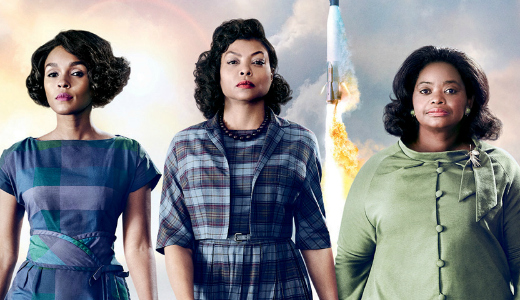The Oscars are nearly here. And we all know it wouldn’t be the Oscars without some Oscar-centric controversy. The #OscarsSoWhite hashtag has been replaced, according to some, with #OscarsSoMale.
A recent study by USC’s Annenberg School for Communication and Journalism found that of the 109 films released in 2014, women received fewer than 29% of the speaking roles. “That breaks down to 2.5 male roles per female role,” notes ABC News reporter Joi-Marie McKenzie.
Now, this discrepancy is real, and I’d love to see more and meatier female roles on the big screen. But it’s interesting that folks are talking about this controversy now. Looking at this year’s Best Picture nominees, strong women sit at the heart of the majority of them. And as we’ll see, they don’t need to have the most lines to be at the center of the story.
We’ll start with Arrival, the deep-thinking sci-fi thriller starring Amy Adams. When a bevy of aliens comes to earth with unknown intentions, it’s up to Adams’ brilliant linguist Louise Banks to figure out what they want. I think Adams’ should’ve received an Oscar nom for her multidimensional work here, playing not just a committed language expert, but a loving, sacrificial mom, too.
Fences did spawn an acting nom (and likely award) for Viola Davis, who plays Rose Maxson, longsuffering wife of Denzel Washington’s problematic protagonist, Troy. While Fences is Troy’s story—his internal battle with his own soul and the toll it takes on the ones he loves—Rose is its moral core, the character with whom we, as an audience, must sympathize.
Near the middle of the movie, Troy tries to justify why he stepped out on Rose. “It’s not easy for me to admit that I been standing in the same place for 18 years,” he says.
“I been standing with you!” Rose thunders back. “I been right here with you, Troy! I got a life too. I gave 18 years of my life to stand in the same spot with you!” Blistering. Rose might’ve stood in the shadow of Troy’s oversized ego and insecurities, but this is no weak woman.
Hidden Figures gives us not one, but three strong women (played by Taraji P. Henson, Octavia Spencer and Janelle Monáe). These unsung heroes of the early space program worked in a place and age where racism was an overt, everyday reality for virtually all people of color. But through grace, perseverance and flat-out talent, they eventually received a measure of the recognition they deserved. Like Arrival, the heroines in Hidden Figures are wives and moms. And while the story doesn’t devote as much screen time to home life, it does take the opportunity to show us how important their families are to them.
The love story La La Land, meanwhile, focuses on a girl and boy, both big dreamers who fall in love. Male protagonist Sebastian (Ryan Gosling) receives plenty of screen time, but La La Land really feels like the story of Emma Stone’s Mia and her quest to be a movie star. And she’s the one who eventually faces with the movie’s central choice: whether to pursue her acting dream wholeheartedly or give it up for a chance at love.
Next, both Lion and Moonlight have unquestionably male protagonists, but women shape them into who they are and, in many ways, push the story along.
In Moonlight, Chiron’s lifelong template is set, in large part, by his drug-doing mother, Paula. We see the character (played by Naomie Harris) slowly fall deeper and deeper into the clutches of crack cocaine. She’s abusive and neglectful, and Chiron—who has plenty of other issues—suffers the life-changing wounds of that relationship. The fact that he makes it to adulthood at all may be thanks to Teresa (Janelle Monáe again), a mom-like figure who steps it up just at the right time.
Finally, Lion is all about motherhood—and one young man’s quest to find his own mom. Saroo was accidentally whisked away from his biological family in India as a little boy after falling asleep on a deserted train that carried him more than 1,000 miles from home. He had a happy childhood, thanks to his adoptive parents, John and Sue Brierley (David Wenham and Nicole Kidman). But his desire to find his birth mother again powers the story … and leads to some wonderful revelations about the power of family and the beauty of adoption.
Now, all these films have problems, and some have significant ones. I don’t want to minimize those. Nor do I want to minimize the apparent gender inequality in the movies generally being made. But from what I can see from this year’s crop of Best Picture nominees, the message is clear: This year, at the Oscars at least, women rule.






Recent Comments